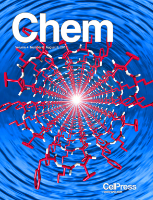
Chem
Scope & Guideline
Leading the Charge in Open Access Chemical Research
Introduction
Aims and Scopes
- Catalytic Chemistry:
The journal often features studies focused on catalytic processes, including metal-catalyzed reactions, photocatalysis, and enzyme-inspired catalysis, aiming to enhance reaction efficiency and selectivity. - Sustainable Chemistry:
A significant focus is placed on sustainable practices, such as CO2 utilization, green synthesis methods, and the development of biodegradable materials, reflecting the global emphasis on environmental responsibility. - Materials Science:
Research on the design and application of new materials, particularly those involving metal-organic frameworks (MOFs), covalent organic frameworks (COFs), and nanomaterials, is a core area, showcasing their potential in energy storage, catalysis, and drug delivery. - Nanotechnology and Nanomaterials:
The journal covers advancements in nanotechnology, including the synthesis, characterization, and application of nanomaterials in various fields such as electronics, medicine, and environmental science. - Computational Chemistry and Machine Learning:
There is a growing emphasis on computational methods and machine learning techniques to predict chemical behaviors, optimize reactions, and design new molecules, indicating a trend towards data-driven chemistry. - Chemical Biology:
Research that bridges chemistry and biology, particularly in drug discovery, biomaterials, and bioorthogonal chemistry, is highlighted, reflecting the interdisciplinary nature of modern chemical research.
Trending and Emerging
- Electrocatalysis and Energy Conversion:
A rising trend in publications is the focus on electrocatalysis for energy conversion processes, particularly CO2 reduction and hydrogen production, as the field seeks sustainable energy solutions. - Biomimetic and Bioinspired Chemistry:
Research that draws inspiration from biological systems to design catalysts and materials is gaining traction, highlighting the integration of biology and chemistry in innovative applications. - Smart Materials and Responsive Systems:
There is an increasing interest in the design of materials that respond to external stimuli, such as light, temperature, or pH, indicating a shift towards functional materials with tailored properties. - Artificial Intelligence in Chemistry:
The incorporation of machine learning and AI techniques in chemical research is emerging as a significant theme, facilitating data analysis, reaction prediction, and materials discovery. - Circular Economy and Waste Valorization:
Research focused on the circular economy, including the upcycling of waste materials and sustainable resource management, is increasingly prevalent, reflecting global sustainability goals.
Declining or Waning
- Traditional Organic Synthesis:
There appears to be a declining emphasis on classical organic synthesis techniques, as researchers increasingly favor more efficient and innovative methods such as photoredox and metal-catalyzed reactions. - Inorganic Chemistry:
Research specifically dedicated to traditional inorganic chemistry topics, such as coordination complexes and classical inorganic reactions, has seen a reduction in frequency, possibly due to the shift towards more interdisciplinary approaches. - Conventional Polymer Chemistry:
The focus on conventional polymer chemistry methods, particularly those that do not integrate sustainability or innovative material properties, is waning, as newer, more advanced techniques take precedence. - Fundamental Physical Chemistry:
Papers centered on fundamental concepts of physical chemistry, while still important, are appearing less frequently as the journal leans towards applications and interdisciplinary studies.
Similar Journals
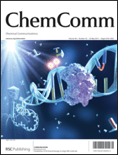
CHEMICAL COMMUNICATIONS
Fostering collaboration in the world of materials science.Chemical Communications, published by the esteemed Royal Society of Chemistry, is a prominent journal within the field of chemical science, focusing on the dissemination of cutting-edge research in a variety of sub-disciplines including catalysis, materials chemistry, and electronic materials. Operating without an open access model, this journal provides critical insights from contributors around the globe, enhancing our understanding of complex chemical interactions and innovative applications. Ranked in the top quartile for several categories such as Ceramics and Composites, and Metals and Alloys, Chemical Communications boasts impressive Scopus rankings, securing strong positions across multiple fields and showcasing its influence within the scientific community. The journal is committed to advancing knowledge and fostering collaboration among researchers, professionals, and students, making it an invaluable resource for those looking to stay abreast of the latest advancements in chemistry and materials science. With a publication history dating back to 1965 and continuing into 2024, its rich archive serves as a vital repository of chemical research and development.
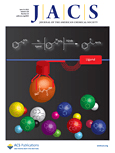
Journal of the American Chemical Society
Unveiling Breakthroughs in Chemistry Since 1879Journal of the American Chemical Society (JACS), published by the American Chemical Society, stands as a pivotal publication in the field of chemistry, facilitating the dissemination of significant research findings since its inception in 1879. With an impressive impact factor and esteemed rankings placing it in the Q1 quartile across various categories—including Biochemistry, Catalysis, and Colloid and Surface Chemistry—JACS continues to serve as a vital resource for scientists, professionals, and students alike. Researchers choose JACS for its rigorous peer-review process, ensuring high-quality content that shapes the landscape of modern chemistry. The journal's extensive scope encompasses pivotal advancements and innovative methodologies, reflecting the evolving dynamics of chemical research. With access options being traditional subscription-based, it remains crucial for institutions and individuals to engage with its latest issues to stay at the forefront of chemical science advancement.

Nature Synthesis
Innovating Materials Science for a Sustainable FutureNature Synthesis, published by SpringerNature, is a premier peer-reviewed journal dedicated to advancing the field of synthesis in chemistry and materials science. With an impressive impact factor and categorized in the Q1 quartile for Chemistry (miscellaneous), Inorganic Chemistry, Materials Chemistry, and Organic Chemistry, it ranks prominently among its peers, reflecting its high-quality research output and relevance.
This journal provides a platform for researchers, professionals, and students to publish innovative synthesis methodologies, novel materials, and interdisciplinary approaches that push the boundaries of chemistry. Operating under an Open Access model, it ensures that research is widely accessible, fostering collaboration and engagement across the global scientific community.
Situated in the United Kingdom, Nature Synthesis is committed to contributing to the scientific discourse from 2022 to 2024, and beyond, as it continues to highlight significant advancements across chemistry domains.
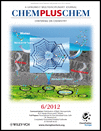
ChemPlusChem
Connecting Researchers to Transform the Landscape of ChemistryChemPlusChem is a premier journal published by WILEY-V C H VERLAG GMBH, dedicated to the vibrant field of chemistry. With an ISSN of 2192-6506 and an impressive Q1 ranking in Scopus's 2023 category for miscellaneous chemistry, this journal serves as a significant platform for the dissemination of high-quality research and innovative findings. Since its inception in 2012, ChemPlusChem has fostered interdisciplinary collaborations, encapsulating a wide array of topics within chemistry that facilitate scientific advancement and education. The journal features a robust open access system, enabling extensive visibility for authors while providing easy-to-access resources for researchers, professionals, and students globally. Located in Weinheim, Germany, ChemPlusChem reflects international standards and ambitions, striving to enrich the global scientific community through rigorous research and engaging scientific discourse.

Eurasian Journal of Chemistry
Advancing Global Chemistry ResearchEurasian Journal of Chemistry is an emerging open-access journal published by KARAGANDA STATE UNIVERSITY in Kazakhstan. With a focus on the diverse and dynamic field of chemistry, this journal aims to disseminate cutting-edge research and innovative findings from various branches of chemistry, engaging a global audience of researchers, professionals, and students. Despite its recent inception in 2023, the journal is strategically positioned within the field, currently ranked in the fourth quartile of Scopus for General Chemistry, indicating its potential for growth and contribution to the scientific community. The ISSN of the journal is 2959-0663 with an electronic counterpart of 2959-0671, ensuring wide accessibility to its rich content. With an open-access model, the Eurasian Journal of Chemistry promotes the sharing of knowledge and advances in research to foster collaboration and inspiration across the globe.

Journal of the Iranian Chemical Society
Fostering Collaboration for a Brighter Chemical FutureThe Journal of the Iranian Chemical Society, published by SPRINGER, is a prominent academic journal dedicated to advancing the field of chemistry. With an ISSN of 1735-207X and an E-ISSN of 1735-2428, this quarterly journal has been contributing valuable research from 2006 to 2024. Situated in Germany, it serves as a vital platform for chemists and researchers to disseminate their findings, particularly within the miscellaneous chemistry category, where it ranks in the Q3 quartile for 2023. Despite its current lack of open access options, the journal maintains a solid presence in the academic community, evidenced by its Scopus ranking of #165 out of 408 in general chemistry and a commendable 59th percentile. The journal's objective aims to foster innovation and collaboration in chemical research, making it an essential resource for professionals and students keen on pioneering developments in the field. As a subscriber, you will gain insights into cutting-edge research that drives the future of chemistry.
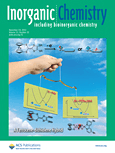
INORGANIC CHEMISTRY
Advancing the Frontiers of Inorganic ChemistryInorganic Chemistry, published by the American Chemical Society, stands at the forefront of the field of inorganic and physical chemistry, boasting an impressive impact in the academic community with a 2023 classification in the Q1 quartile across multiple categories including Inorganic Chemistry and Miscellaneous Chemistry. Since its inception in 1962, this esteemed journal has been a crucial platform for disseminating groundbreaking research, innovative methodologies, and comprehensive reviews integral to understanding the complex behaviors of inorganic materials. With a ranking of #12 out of 79 in Inorganic Chemistry and #37 out of 189 in Physical and Theoretical Chemistry according to Scopus metrics, Inorganic Chemistry has established itself as a premier destination for researchers, professionals, and students alike, eager to stay abreast of pivotal developments and trends in the discipline. Despite being a subscription-based journal, its esteemed reputation and critical contributions make it essential for anyone engaged in the exploration of inorganic chemical phenomena. As it prepares to converge into a new era by 2024, the journal continues to embody excellence and innovation, fostering a dynamic exchange of ideas essential for advancing this vibrant area of science.
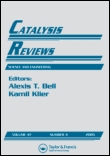
CATALYSIS REVIEWS-SCIENCE AND ENGINEERING
Exploring Breakthroughs in Catalytic Science and TechnologyCATALYSIS REVIEWS - SCIENCE AND ENGINEERING, published by Taylor & Francis Inc, is a leading journal in the field of catalysis, providing a vital platform for the dissemination of rigorous research and comprehensive reviews from 1968 to the present. With an impressive Q1 ranking in multiple categories, including Catalysis and Chemistry, this journal stands out as an essential resource for professionals, researchers, and students alike. Its high impact factor and esteemed Scopus ranks — including 3rd in Chemical Engineering: Process Chemistry and Technology — highlight the journal's influence and prestige within the scientific community. While primarily a subscription-based publication, the journal’s commitment to advancing the understanding of catalytic processes continues to foster innovation in various industrial applications, making it indispensable for anyone engaged in the fields of chemical engineering and applied chemistry.
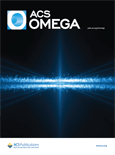
ACS Omega
Unlocking Knowledge, Fueling Innovation in Chemistry.ACS Omega is a prominent open-access journal published by the American Chemical Society that has been serving the global research community since its inception in 2016. With ISSN 2470-1343, it focuses on a wide array of topics within the realm of Chemistry and Chemical Engineering, making it a crucial platform for researchers and practitioners aiming to disseminate significant findings across these disciplines. The journal maintains an impressive standing, ranking in the Q2 quartile for both Chemical Engineering and Chemistry categories, highlighting its impact and relevance in contemporary research. Additionally, with its Scopus ranks placing it within the top 24% and 27% of General Chemistry and General Chemical Engineering respectively, ACS Omega continues to foster innovation and facilitate collaboration among scientists. As an Open Access journal, it ensures that research outputs are freely available to all, enhancing the accessibility and visibility of contributors’ work, thus playing a critical role in advancing scientific knowledge globally from its headquarters in Washington, D.C.

JOURNAL OF CHEMICAL SCIENCES
Pioneering Research for a Sustainable Future in ChemistryThe JOURNAL OF CHEMICAL SCIENCES, published by the Indian Academy of Sciences, is a premier academic journal that serves the global community of chemists and researchers. With an ISSN of 0974-3626 and an E-ISSN of 0973-7103, this journal is pivotal in disseminating high-quality research across diverse areas of chemical sciences. As of 2023, it holds a respectable Q3 ranking in the field of Chemistry (miscellaneous) and ranks #215 out of 408 in General Chemistry according to Scopus, reflecting its commitment to advancing the discipline. Operating in an open-access format, the journal ensures that research findings are readily accessible to a broader audience, fostering collaboration and innovation. Established in 1980 and continuing to evolve, the journal's scope encompasses fundamental and applied chemistry, and aims to bridge gaps between theoretical and practical applications. With a mission to support the scientific community, the JOURNAL OF CHEMICAL SCIENCES is an essential resource for researchers, professionals, and students alike, providing a platform for the exchange of groundbreaking ideas and discoveries.